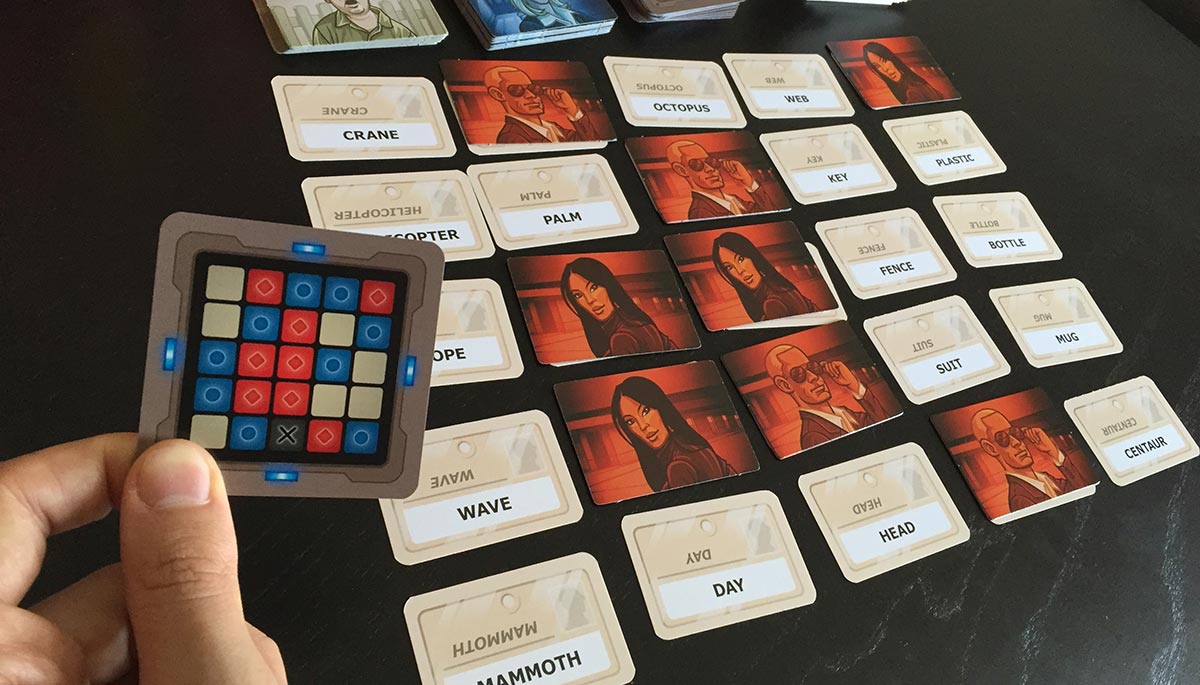Codenames is a game with a fairly simple setup. Players pair up, lay out a grid of codewords, and choose a map from the deck. One player in each pair, the spymasters, are aiming to get their partner to guess words marked on the map as their color. The win condition is to be the first team to have all of your team’s words guessed, and there’s an additional condition where if a team guesses the word dubbed the assassin, then they instantly lose the game.
Codenames main feature is this kind of word association gameplay where the spymaster, at the beginning of their team’s turn, can give a 1-word hint and a number indicating the number of words that the hint alludes to. In my opinion, Codenames does a great job at being what it sets out to be: a simple party game that a small group can play together fairly quickly but is still fun enough to be replayable. It also balances itself fairly well, with a team’s mis-guess leading to, at best, a neutral word or at worst, a word for the other team.
The only thing about Codenames that felt like it fell short was in the assassin card. In theory, it seems like a good idea: it makes player more cautious about their guesses because at any given time, there’s the possibility they could guess the wrong word and lose. This is makes the spymaster more cautious as they must be wary not to give a hint that could possibly be tied to the assassin card and lead to this missed guess. However, in practice, the assassin didn’t feel as immediately dangerous as it was in theory.
This is, of course, an anecdotal experience, but when playing Codenames, the assassin card could have been removed with little effect on the way the game was played. As a player, it was not on my mind as I was more focused on parsing the spymaster hint, which I (perhaps recklessly) did not believe would lead me to potentially guess the assassin card. Similarly, as the spymaster, the words were different enough that it was a greater challenge to group words under a singular hint than to make the effort to choose a hint that would exclude the assassin card.
One way I can think of to remedy the kind of lackluster of the assassin card without removing it (because it is in theory an interesting addition to the game) is to make it so that there’s more than 1 on the board of 25. However, when the teams combined are guessing a total of 17 words, adding too many assassins could make it so that any kind of misfire leads to an instantaneous loss. Another method could be to lean into this idea of misfiring and turn the grid into a point system. Each correct guess amounts to +1 points while any kind of misfire leads to -1 points, and the game still ends when one team has guessed all of their codenames. This would serve to keep the game fairly quick with spymasters aiming to give larger clues but also bringing out that kind of danger the assassin card is supposed to create in the game.
